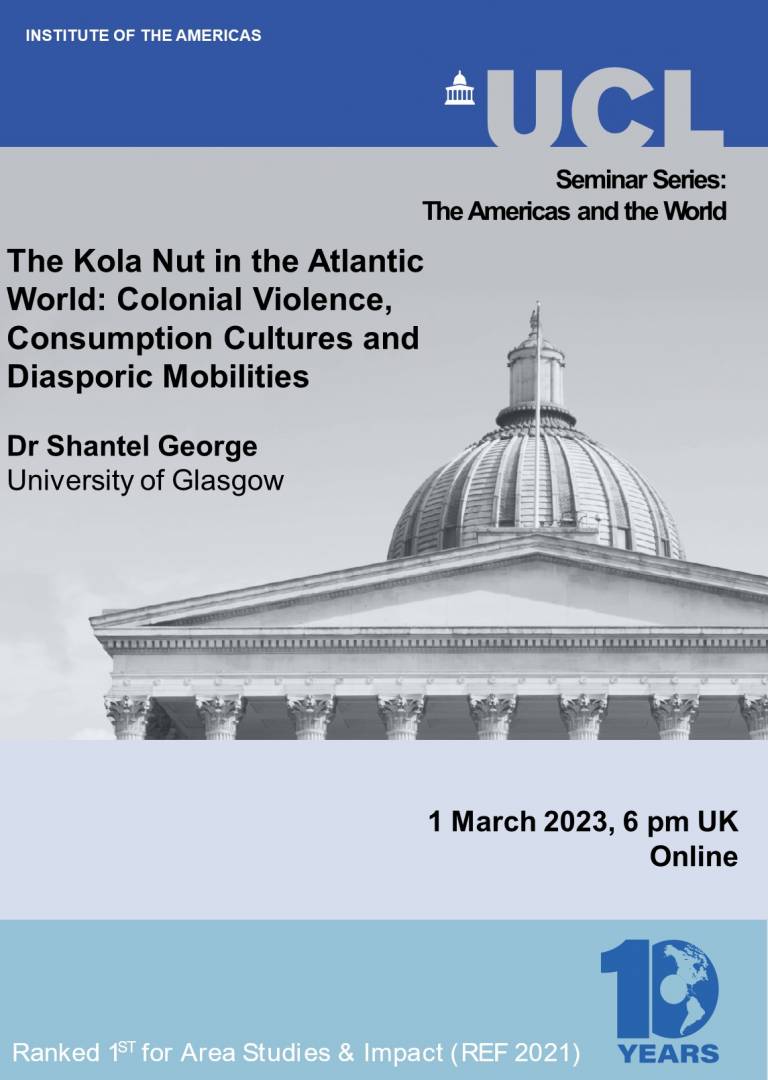The Kola Nut in the Atlantic World: Colonial Violence, Consumption Cultures and Diasporic Mobilities
01 March 2023, 6:00 pm–7:30 pm

This event was re-scheduled: from FEB13 in-person, to MAR01 online
This event is free.
Event Information
Open to
- All
Availability
- Sold out
Cost
- Free
Organiser
-
UCL Institute of the Americas
From the late nineteenth-century, British explorers, bioprospectors and homoeopathic chemists fervently reported the ‘discovery’ of the African kola nut, which was slated to supersede chocolate, tea and coffee, bolster imperial ambitions, and offer ‘miraculous’ health benefits. For African and African-descended peoples, however, the kola nut was not new, having cultivated, consumed, and, from at least the thirteenth century, established trading networks in the nut.
Yet, few studies examine Africans as distributors and consumers of global commodities, failing to recognise the impact of Africans throughout the life histories of commodities. This talk will chart the complex history and wide-ranging influence of the African kola nut, focusing on Nigeria, Jamaica and Britain from 1500 to 1900. It uses this investigation as a case study to emphasise and explain the long-neglected role of Africans as distributors and consumers of global commodities and to highlight the relationship between consumption cultures and imperialism in late-nineteenth-century Britain.
About the Speaker
Dr Shantel George
Lecturer in History at University of Glasgow
Shantel George is a lecturer in history, researching the transatlantic slave trade, slavery and emancipation, with a particular focus on the British Caribbean. She received her PhD from SOAS, University of London, and is currently finishing a book manuscript, "Yoruba are on a Rock": Liberated Africans and African Work in Grenada (under contract with Cambridge University Press). Shantel is also working on a global history of the African kola nut, which is supported by short-term fellowships from the Gilder Lehrman Center for the Study of Slavery, Resistance and Abolition and the John Carter Brown Library.
Other events in this series
 Close
Close

